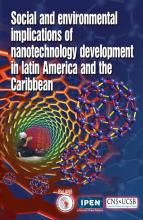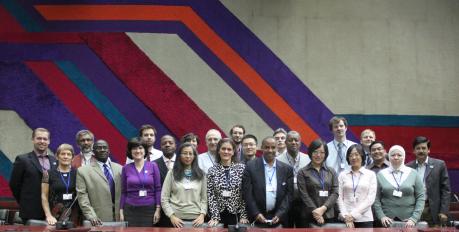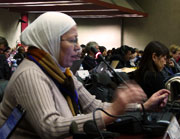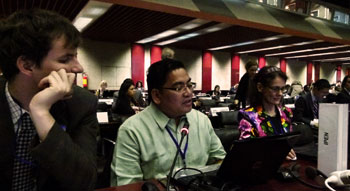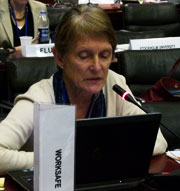You are here
Related to Policy Area
Mission
IPEN's mission is a Toxics-Free Future for All.
Every baby everywhere in the world enters life with hundreds of toxic, man-made chemicals in their bodies. Since World War II, approximately 80,000 new synthetic chemicals have been manufactured and released in the environment, with approximately 1,500 new chemicals being introduced each year. One US study found an average of 200 synthetic chemicals in the umbilical cord blood of newborn infants.
About IPEN
For a Toxics-Free Future
IPEN is a global network forging a healthier world where people and the environment are no longer harmed by the production, use, and disposal of toxic chemicals.
Over 600 public interest NGOs in more than 120 countries, largely low- and middle-income nations, comprise IPEN and work to strengthen global and national chemicals and waste policies, contribute to ground-breaking research, and build a global movement for a toxics-free future.
Toxics Priorities
Chemicals Hazardous to Human Health and the Environment:
Many toxic chemicals are too hazardous to safely produce and use. Some travel across the world via wind currents or international trade and are deposited without respect to national borders. Some chemicals can bio-accumulate in the food chain and others can remain in the environment for a long time. Growing chemical production means greater problems everywhere in the world. Some types of hazardous chemicals include:
• Pesticides, such as DDT, lindane and endosulfan
Campaigns & Projects
Globalizing Local Concerns, Localizing Global Policy
Because it works both internationally and with grassroots and national groups, IPEN is uniquely positioned to “connect the dots” between organizations and to identify, shape and leverage opportunities to eliminate toxic chemical hazards around the world.
International Policy
Since its inception at the first session of the Intergovernmental Negotiating Committee for the Stockholm Convention, IPEN has continued to work on international policy related to chemicals issues. IPEN works to ensure that local, on-the-ground concerns about how chemicals affect human and environmental health, labor, human rights, and other issues are not lost in international policy debates, and are reflected in chemicals treaties, agreements, and conventions.

